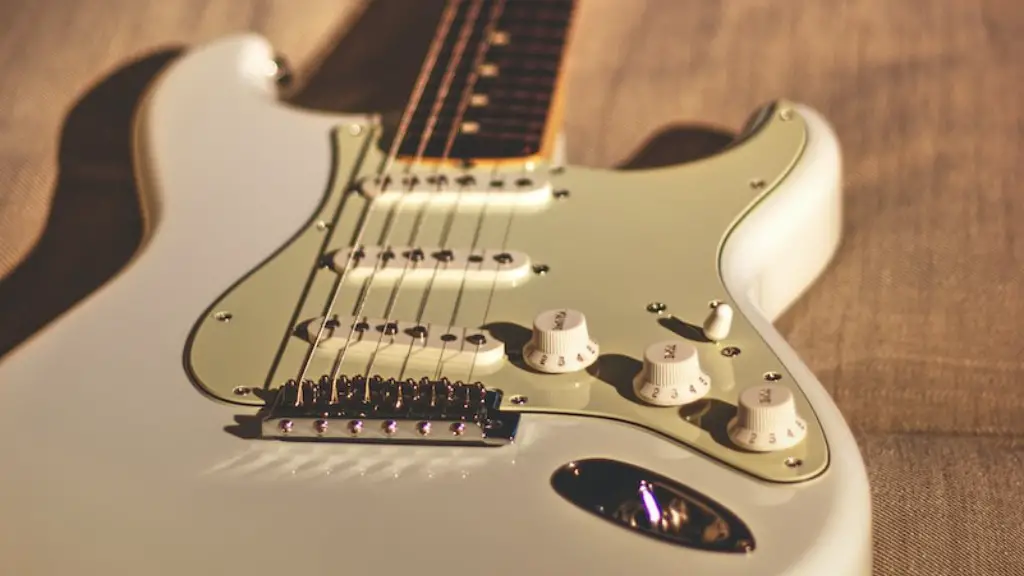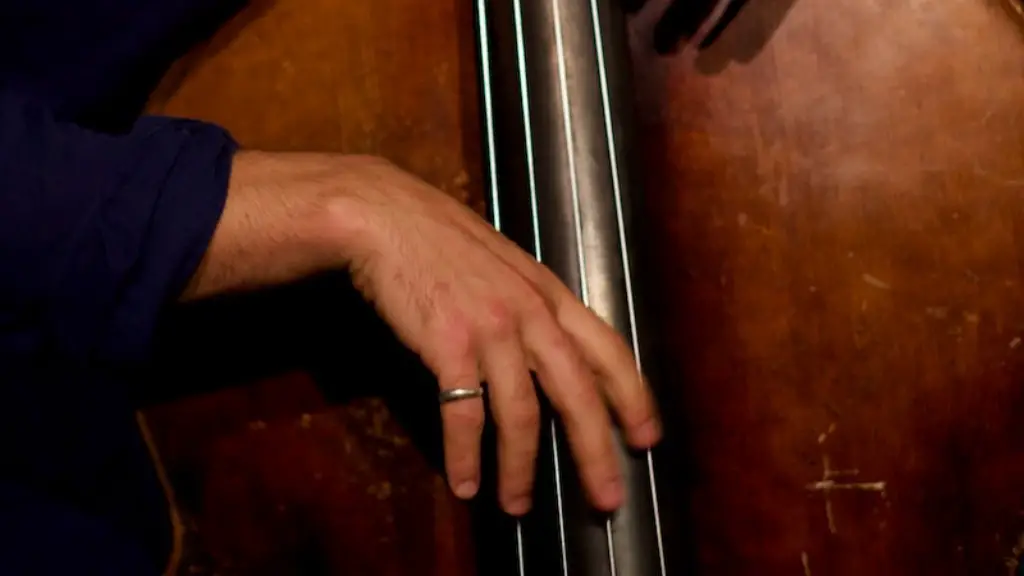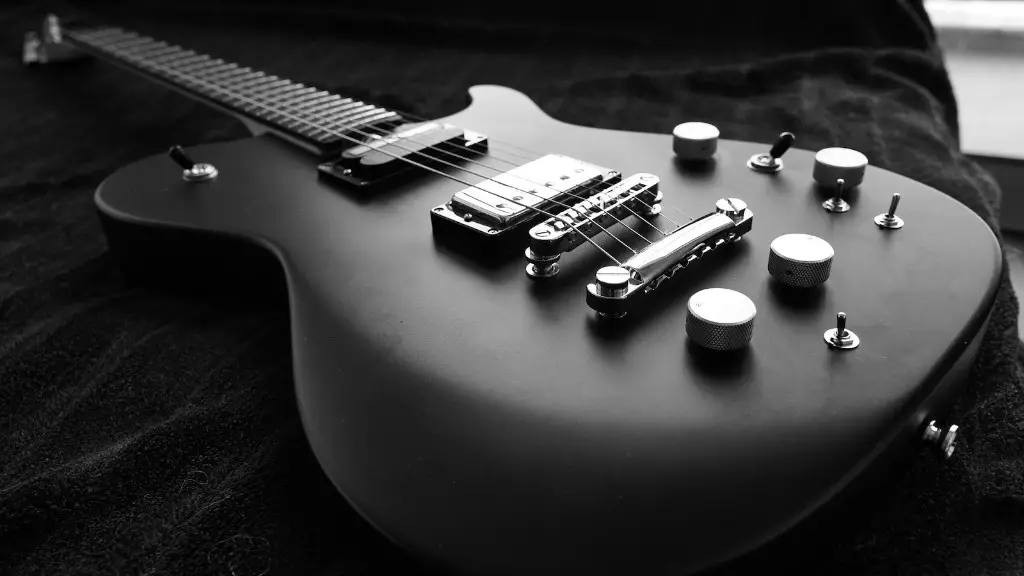Getting rid of electric guitar buzz can be an annoying task. Fortunately, with a few simple steps you can get rid of the annoying buzz and get back to playing your guitar.
The first step is to check that your guitar is properly set up and all the components are secure. If the strings are too loose or not properly intonated, the instrument will begin buzzing. Make sure all screws are tightened and that all soldering points are secure.
The second step is to check for any wiring faults in your amplifier or effects pedals. Faulty wiring can cause unwanted buzzing, so if you’ve recently changed or added something to your rig, it could be the cause of the problem.
Finally, make sure you use good quality cables when connecting your guitar to an amplifier or effects pedal. Old cables with poor shielding will produce buzz and hum when connected.
By following these simple steps, you can eliminate electric guitar buzz and get back to enjoying your favorite tunes!
Troubleshooting the Wiring of an Electric Guitar
Electric guitar buzz can be a frustrating issue, but fortunately there are a few simple steps you can take to eliminate it. First, check your cables and make sure they’re securely connected to both your guitar and amplifier. If the connections seem loose or faulty, replace them with new cables. Next, inspect your pickups, as any dirt or dust buildup can cause buzzing. Clean them with a soft cloth and make sure they’re properly adjusted in relation to the strings. If you’re still having trouble, try re-angling the pickups away from other electronics in the room or using a noise suppressor pedal.
Finally, if none of these solutions work, it might be time to invest in a higher quality instrument. Low-cost guitars are often made with cheaper materials that are more prone to buzzing. A more expensive guitar is more likely to have better wiring and shielding that reduces unwanted feedback. Remember: never skimp on quality when it comes to musical instruments!
Adjusting the Pickup Height
Electric guitar buzz can be a constant source of frustration for guitarists, but it can be eliminated or at least reduced by adjusting the pickup height. The pickups are the magnetic transducers that convert the string’s vibration into electrical signals. When they are too close to the strings, they can cause buzzing or an increase in noise. The best way to reduce buzzing is to adjust the pickup height so that it is not too close to the strings. The pickup should be as close to the string as possible without actually touching it. This will also help you get a better tone out of your guitar.
To adjust your pickups, you will need a small flat-head screwdriver and a ruler or measuring tape. Using your ruler, measure the distance between the strings and each of your pickups and make sure they are equal on both sides. Once you have done this, use your screwdriver to adjust the height of each pickup until you have achieved an even distance from all of them. Be sure to make small adjustments so as not too overshoot your desired height. You may have to repeat this process several times before you get it right, but with patience and practice, you should eventually be able to eliminate any buzzing coming from your electric guitar.
Checking the Volume and Tone Settings
Electric guitar buzz is an annoying and persistent problem for many guitarists. Fortunately, it can be easily dealt with by adjusting the volume and tone settings on your guitar. The most important thing to remember when adjusting these settings is to make sure you don’t set them too high as this will cause an unpleasant amount of distortion and feedback.
Start by lowering the volume on your guitar. This will help reduce any buzzing or humming produced by the pickups. If you find that the sound is too quiet, you can gradually increase the volume until you reach a suitable level. If you still hear a buzzing sound, try tweaking the tone knobs until the hum disappears.
Next, adjust the tone knobs on your guitar. These should be set so that they give a balanced sound and don’t emphasize any particular frequencies too much. This can be done by experimenting with different settings until you find one that sounds good to you. Don’t forget to check both pickups if your guitar has two. Finally, check that all of your cables are securely connected to ensure a clear signal from your guitar to your amplifier or speaker.
How to Get Rid of Electric Guitar Buzz
Electric guitar buzz can be an annoying sound which can take away from the quality of your playing. Fortunately, there are a few steps you can take to reduce or even eliminate buzzing noises from your guitar. Start by checking the fretboard and making sure it is properly oiled and polished. If the frets are worn, they should be leveled, crowned, and polished. You should also check the nut slots for any dirt or debris that might be causing interference with the strings.
After that, you should inspect your amplifier. Make sure all of its connections are tight and secure, and check the cables for any signs of damage or fraying. If you notice any of these problems, replace them as soon as possible. Additionally, if your amplifier has a noise gate feature, use it to reduce unwanted hums or buzzes in the signal.
Finally, check your pickups and make sure they are properly grounded and installed correctly. If you notice any loose wiring or faulty connections here as well, have them professionally fixed. With a bit of effort and patience, you can get rid of electric guitar buzz for good!
Re-positioning the Pickup Pole Pieces
Are you having trouble with electric guitar buzz? It could be due to the position of your pickup pole pieces. A buzzing sound can be caused by the pick-up not being properly aligned with the strings. By moving the pole pieces closer or further away from the string, it can help reduce or eliminate any unwanted buzzing that you may be experiencing. It is important to note that some pickups have adjustable pole pieces while others are non-adjustable and require more intricate work.
The best way to determine if the pickup poles need adjusting is to carefully inspect them and see if they are too close or too far away from the strings. You may also want to use a small screwdriver to manually adjust them one at a time until they are properly aligned. Once you have completed adjusting all of the pole pieces, it is important to check for any buzzing that may still exist before putting your guitar back in its case. If there is still a buzz, you may need to look at other factors such as string height and intonation adjustments.
If all else fails, you may want to consider taking your guitar into a repair shop for further inspection and adjustments. A professional can help identify any underlying issues that may be causing the buzz and offer solutions on how you can fix them yourself or provide professional repair services if needed.
Examining the Guitar’s Setup
Getting rid of electric guitar buzz is something that all guitarists have to deal with at some point. Whether you have a new guitar or an older one, it’s important to make sure you have the correct setup. A good setup will ensure that your guitars intonation, strings and pickups are properly adjusted, and that your instrument will sound its best.
The first step in getting rid of electric guitar buzz is to check the action and intonation of the guitar. The action refers to how high or low the strings are from the fretboard, while intonation refers to how accurately each string is tuned to its corresponding note. If either of these settings are off, it can cause buzzing or other tuning issues.
Next, check for any loose connections on your pickups or wiring. If any of these are loose it can lead to unwanted noise or buzzing in your sound. It’s also important to check for any other problems with your instrument such as damaged frets or worn-out pickups. These can all lead to poor sound quality and poor playability.
Finally, make sure you use good strings and keep them in tune. Worn-out strings can cause buzzing and other unwanted noises while new strings will help keep your instrument sounding great. With a proper setup and maintenance of your electric guitar, you should be able to get rid of buzzing once and for all!
The Bottom Line
In conclusion, getting rid of electric guitar buzz is all about understanding the source and finding a way to eliminate it. Start by checking the basics, like the amp settings and cables. If that doesn’t work, it’s worth investigating other possibilities, such as ground loop hum or faulty wiring. Once you’ve identified the source of the problem, you can take steps to eliminate it. By following these tips and tricks, you should be able to get rid of electric guitar buzz and enjoy your playing experience.





